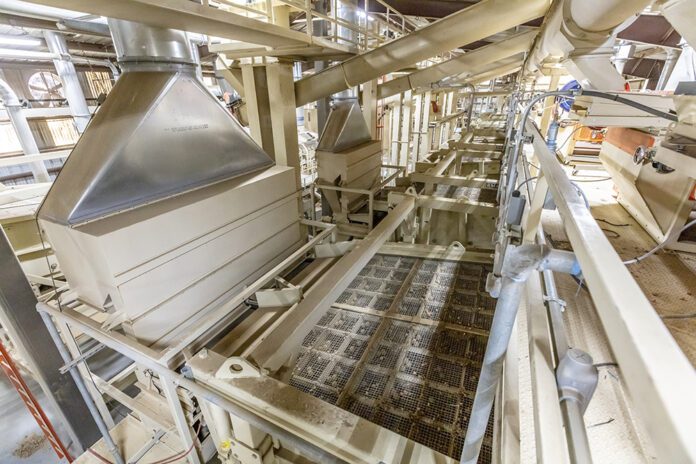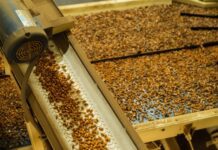
Choosing the right tree nut processor is one of the most critical decisions a grower can make. Not only does your processor impact the quality of your product, but they also influence your bottom line, market access and the long-term success of your operation. For California tree nut growers, whether producing almonds, pistachios, walnuts or pecans, partnering with the right processor can make a world of difference. Here are my top 10 things to consider when selecting a tree nut processor to sell your product.
1. Reputation and Industry Experience
The first thing you should evaluate in a processor is their reputation and experience in the industry. How long have they been processing tree nuts, and what is their standing within the industry? A processor with a long history of successful partnerships with growers, who is respected for both quality and integrity, should be at the top of your list. Do your homework: speak with other growers, consult industry associations, and look for feedback on their track record for honesty and transparency.
2. Processing Capacity and Technology
Not all processors have the same capabilities. Ensure the processor you’re considering has the capacity to handle your volume efficiently. It’s important they’re using modern, advanced technology to clean, dry and sort nuts. Automation, precision sorting technology and optimized drying processes all affect the quality of your end product. A processor that invests in the latest technology ensures your product is handled efficiently and to the highest standards.
3. Food Safety and Certifications
Food safety should be a top priority when choosing a tree nut processor. In today’s market, buyers and consumers expect high standards for cleanliness and safety, and that starts with your processor. Look for processors who hold top industry certifications, such as Safe Quality Food (SQF) or BRC Global Standards for Food Safety. These certifications indicate the processor follows stringent safety protocols and has regular third-party audits. You want a processor who can ensure your nuts meet all food safety requirements and avoid the risk of recalls or contamination issues.
4. Product Quality and Grading
A processor’s ability to grade your nuts accurately and fairly can significantly impact your profits. Poor grading could result in lower prices or rejection of otherwise marketable products. Ask potential processors about their grading procedures and equipment. A processor with state-of-the-art grading technology and a history of consistent, fair evaluations should be a priority. Ensure they are transparent in their grading process and communicate openly about any issues they identify.
5. Competitive Pricing and Transparent Fees
Pricing is, of course, a key consideration when selecting a processor. However, it’s not just about the price they offer per pound; you also need to consider additional fees and charges that could eat into your margins. Ask for a breakdown of all potential costs, including transportation fees, cleaning, sorting and storage charges. The most reputable processors will offer a transparent fee structure with no hidden costs so you understand exactly what you’re paying for and how it impacts your net return.
6. Market Access and Export Capabilities
Does the processor have strong relationships with both domestic and international buyers? For many tree nut growers, a significant portion of their crop is sold overseas. A processor with extensive export capabilities and established relationships in foreign markets can help you access a wider range of buyers, potentially leading to better prices. Additionally, processors who understand export logistics, tariffs and trade agreements can help mitigate risks associated with international trade.
7. Financial Stability and Payment Terms
A processor’s financial stability is crucial to ensuring you get paid on time and in full. Delays in payment or financial instability on the part of the processor can cause serious cash flow problems for your operation. Make sure you assess the financial strength of any potential partner. Look for a processor with a strong balance sheet and a history of timely payments. Additionally, understand the payment terms they offer, whether they pay upon delivery, after a set period or upon product sale. Clear and favorable payment terms are essential for maintaining the financial health of your business.
8. Storage and Handling Capabilities
How your nuts are stored after processing can affect both quality and pricing. A good processor will have advanced storage facilities that ensure your product remains in optimal condition until it is shipped to buyers. This includes temperature-controlled environments, proper humidity controls, and a focus on avoiding contamination. Storage mismanagement can lead to spoilage, pest infestations or mold, all of which will negatively affect your returns. Choose a processor who prioritizes proper storage and handling protocols.
9. Customer Service and Communication
A strong, ongoing relationship with your processor is built on open communication and exceptional customer service. Does the processor have a dedicated account manager for each grower? Are they easily reachable and responsive to your needs or concerns? Whether it’s understanding processing timelines, providing updates on pricing, or offering insights on market trends, you need a partner who communicates clearly and consistently. Strong customer service can make the entire process smoother and give you peace of mind that your crop is in good hands.
10. Sustainability Practices and Environmental Responsibility
Sustainability is increasingly important in the agricultural industry, and more buyers are demanding environmentally responsible products. Working with a processor that embraces sustainability can be a significant advantage. Look for processors that use energy-efficient systems, minimize waste and implement sustainable practices throughout their operations. In some cases, processors with green certifications or participation in sustainability programs can even help position your product more favorably with buyers, particularly in international markets where sustainability is a priority.
Choosing the right tree nut processor is about more than just finding someone who will buy your nuts; it’s about selecting a partner who will help you maximize quality, efficiency and profitability. By focusing on these 10 critical factors (reputation, capacity, food safety, product quality, competitive pricing, market access, financial stability, storage, customer service and sustainability), you’ll be well positioned to make the best decision for your operation.
Take the time to thoroughly vet potential processors, speak to fellow growers about their experiences, and never hesitate to ask questions. The right processor can make a significant difference in the success of your farm, ensuring your nuts are processed to the highest standards and sold at the best possible price.















